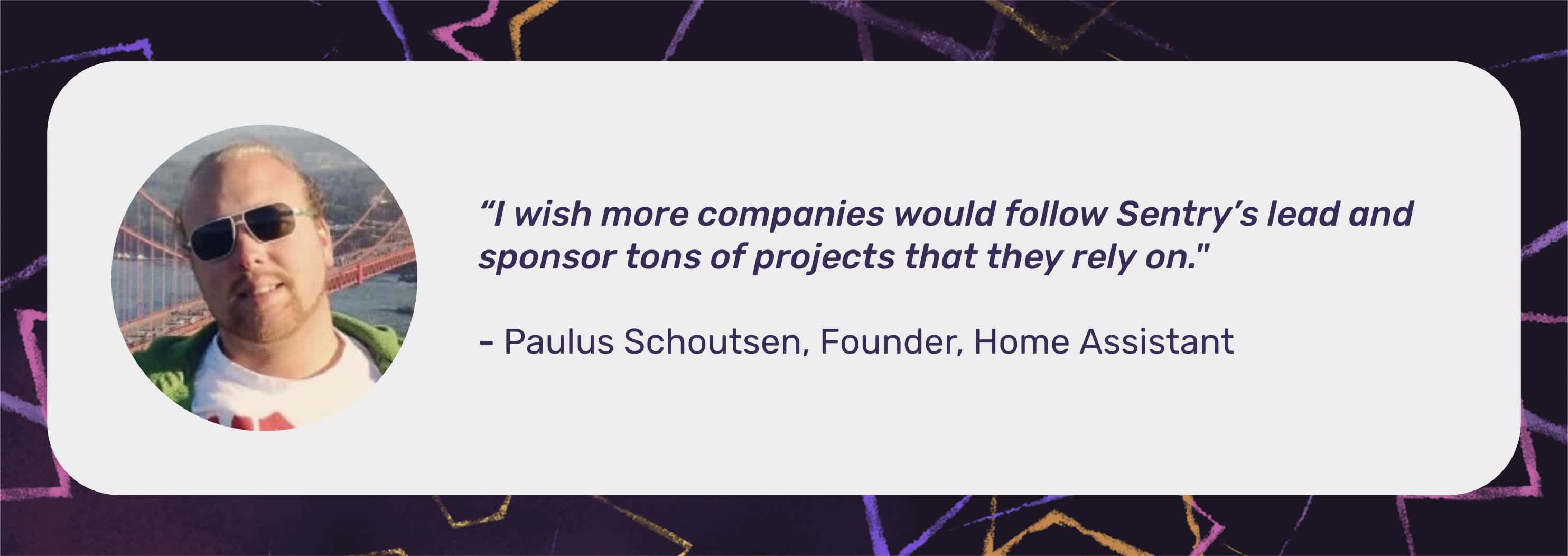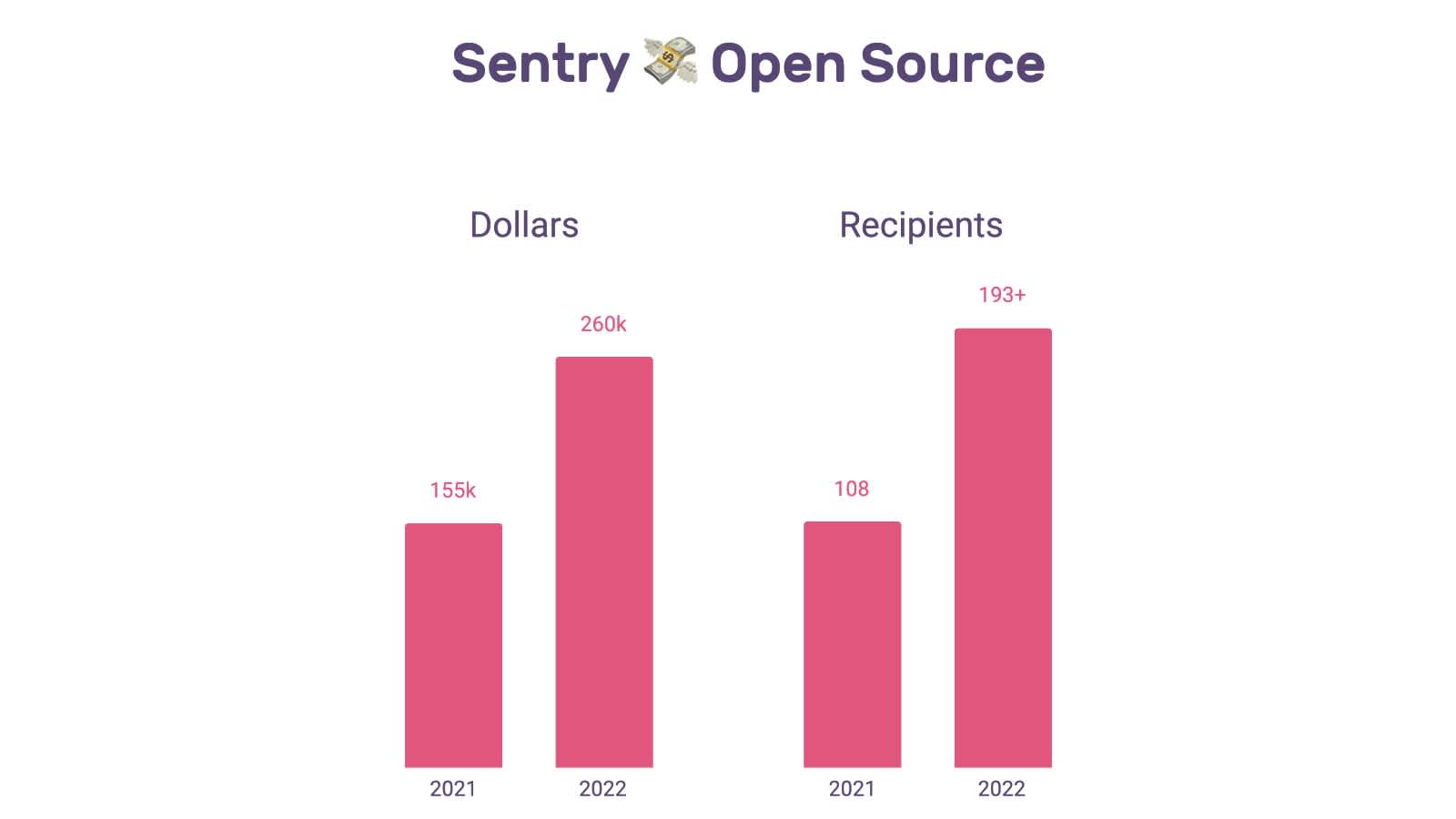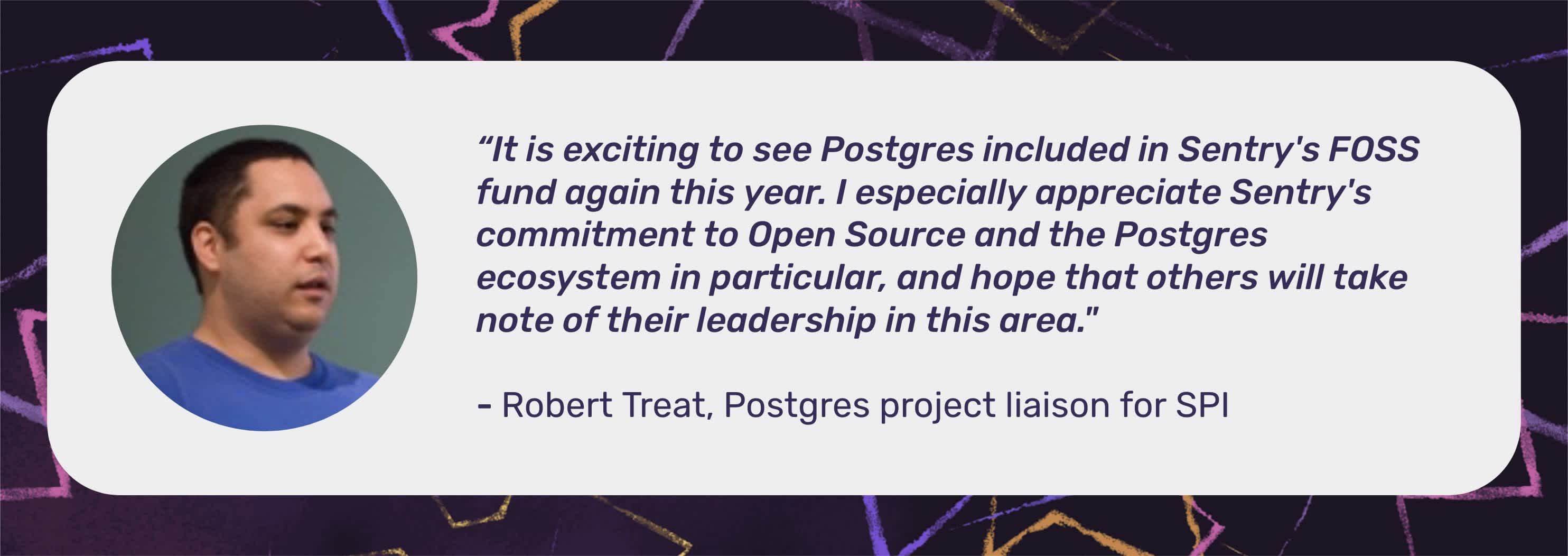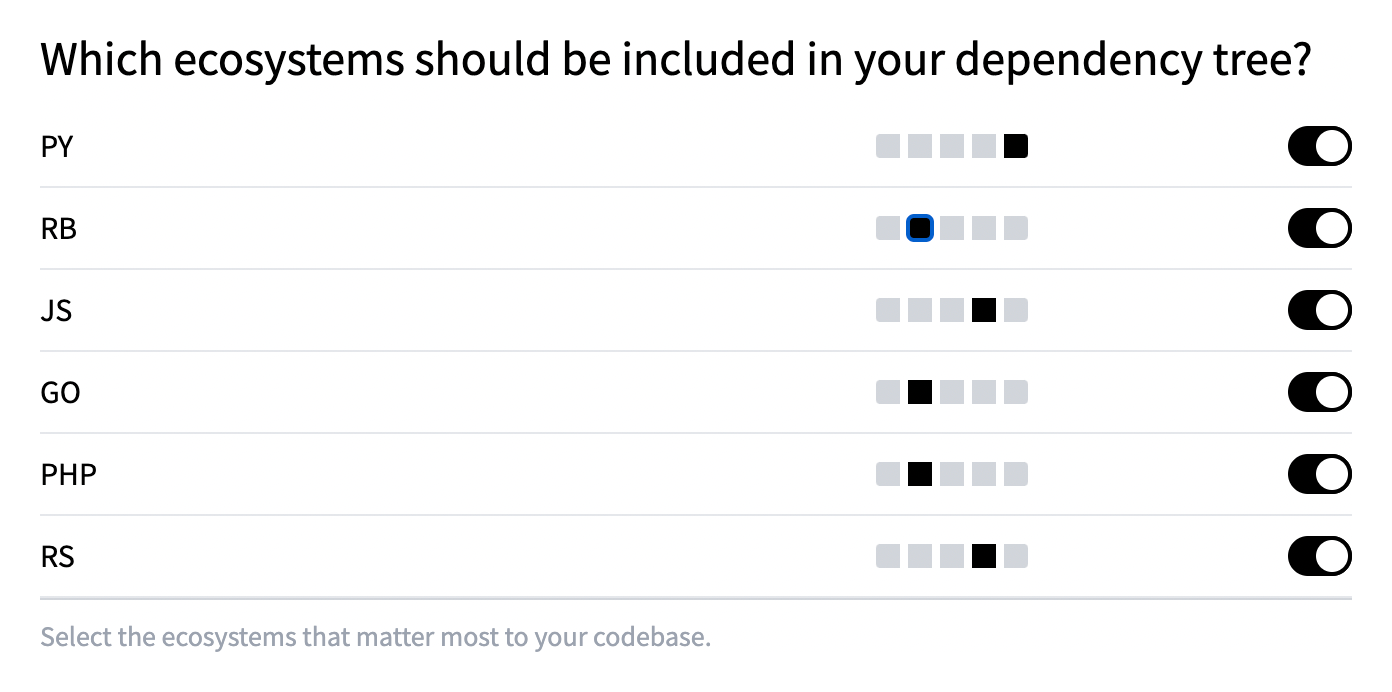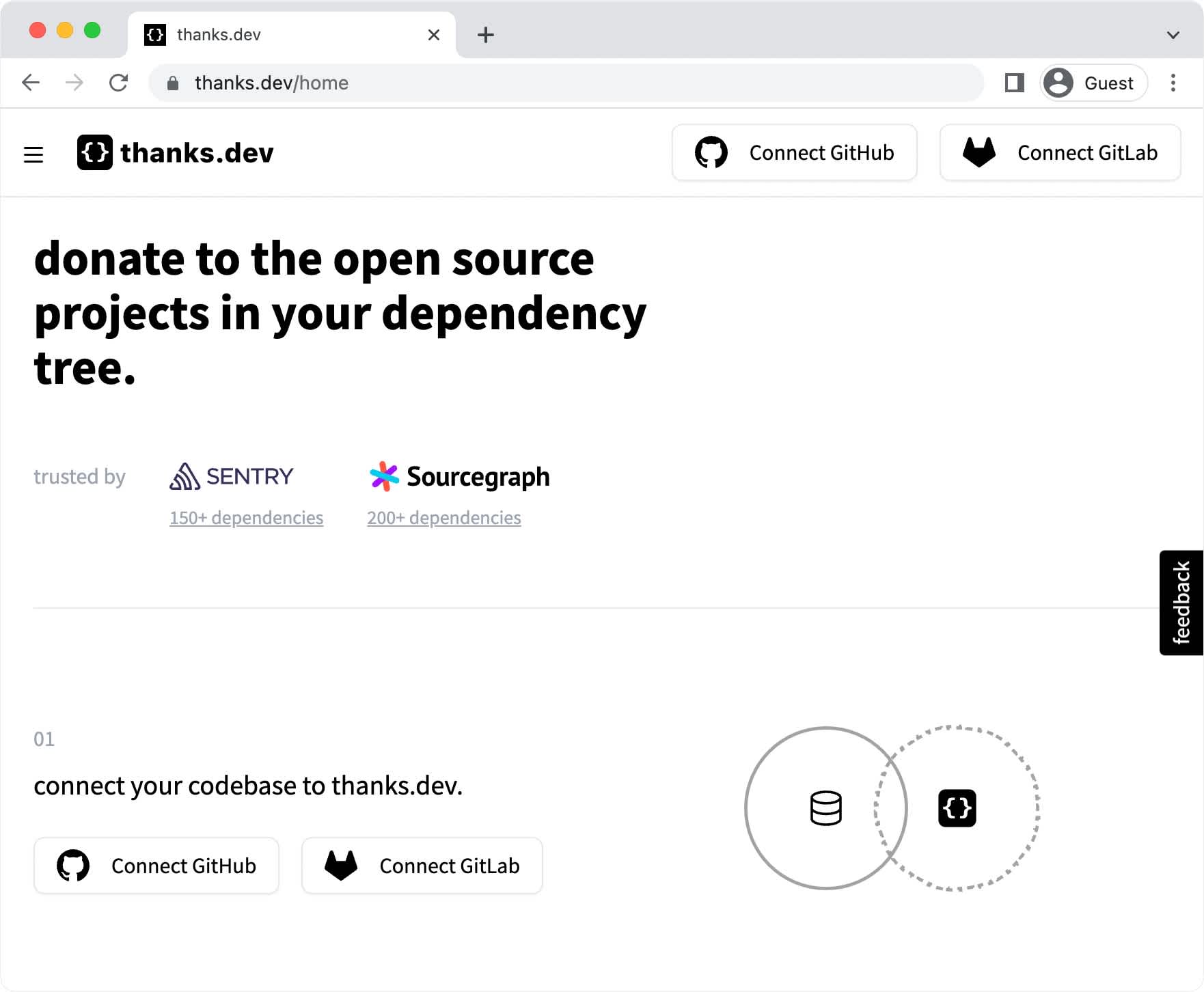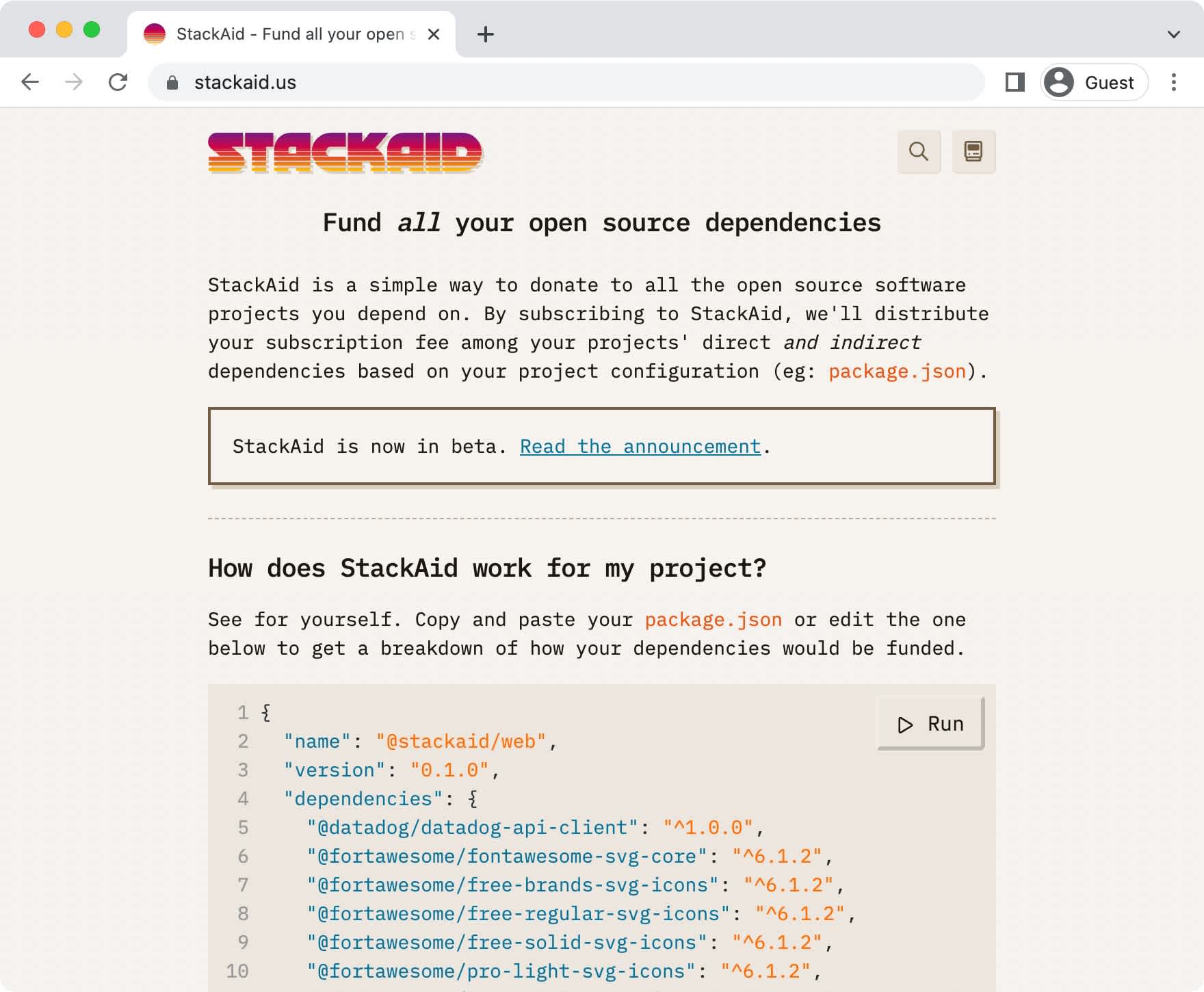We Just Gave $260,028 to Open Source Maintainers
We Just Gave $260,028 to Open Source Maintainers
Sentry is an Open Source-aligned company, and it’s important to us to financially support our non-commercial colleagues in the community as we continue to enjoy commercial success. We’ve given money forever, but last year we really got organized and gave $154,999.89 to 108 recipients. Two points make a line, and this year we are back with a continuation of the industry-leading open source funding program we put in place last year.
More Money, More Recipients
For 2022, we’re giving 68% more moolah to at least 77% more recipients, compared to 2021. Yes, that’s right. We just gave $241,380 to 191 foundations, projects, and individual open source maintainers through traditional channels (GitHub Sponsors, Open Collective, and direct payments), and we’ve pledged $18,648 through two new funding platforms, Thanks.dev and StackAid, which will pay out over the next three months to give maintainers time to sign up. That’s a grand total of $260,028 for open source, which roughly tracks against the first-principles benchmark we adopted last year of $2,000 per year per developer employed at Sentry.
We gave $152,880 to 184 individual projects and maintainers. In addition to our profiles on GitHub Sponsors, Open Collective, Thanks.dev, and StackAid, you can see all the details in this 📊 Google Sheet. Here are some highlights of larger payouts ($6,000+):
Language | Projects |
|---|---|
Python | Jazzband, Pallets, PyPA, pytest |
JavaScript | ESLint, Prettier |
Rust | rust-analyzer, Tokio |
PHP | fabpot |
Other | Homebrew |
Additionally, we gave $67,500 to five foundations covering the core languages (Python, JavaScript, and Rust) and infrastructure components (Postgres, Apache) that we use to deliver Sentry. We also maintained our Partner-level membership ($1,000) in the Open Source Initiative, and we renewed our support for Outreachy at the Includer level for the full year ($20,000). Outreachy’s mission is to onboard newcomers to the open source community from a diversity of backgrounds, and they have a great track record: 80% of their interns continue to contribute to open source after their internship. All told, that’s $88,500 to seven open source foundations.
This year we wanted to expand our funding program to include the platforms our users use most, so we included two more of our SDKs, PHP and Ruby, in our own dependency detection, and we included all of our Tier 1 repos in our pilots with Thanks.dev and StackAid. We also looked through our list of all supported platforms and made sure to include the 23 community-supported frameworks for which we have official integrations.
Like last year, we surveyed our employees to help weight our contributions to our dependencies appropriately. They also told us about a whole bunch of cool projects that either make their work life easier or are just good things to have in the world. We tried to give at least a little something to each one.
Two New Funding Platforms
Beyond the growth in dollar volume and number of projects, the biggest news this year is our pilot projects with two new funding platforms, Thanks.dev ($12,504) and StackAid ($6,114). Sentry is one of the first significant corporate givers on both platforms. For this year, we’re thinking of it as bonus money in addition to what went out on GitHub Sponsors and Open Collective. If you want it, sign up!
Thanks.dev and StackAid both offer a more streamlined experience than GitHub Sponsors or Open Collective for companies like Sentry. They automatically crawl our dependencies via a GitHub integration, and distribute money algorithmically. By comparison, I ended up writing a Tampermonkey script to distribute on GitHub Sponsors, where I was attempting to pay 153 recipients (149 made it through) and I had to manually click through the checkout flow for each one. (Tampermonkey is not on GitHub Sponsors or Open Collective; I made a small personal donation via credit card.) Open Collective is also manual. I only had 36 to process there (34 landed), so I forewent writing a script and we endured only a minor email flood.
The folks at GitHub Sponsors and Open Collective are doing good work and have been responsive to our needs. It’s a sign of how far we’ve come that they are both now part of the status quo of the open source landscape. It’s also great to see new innovation happening from entrepreneurs that love open source and are driven to bring their vision to life. Both Thanks.dev and StackAid have been great to work with as a corporate launch partner, highly communicative and responsive to feedback.
So what’s different between Thanks.dev and StackAid? The algorithm, for one. They each have their own take on discovering dependencies and allocating funds among them. StackAid is more opinionated, while Thanks.dev offers more fine-grained adjustments. For example, Thanks.dev allows for limiting the depth of dependencies we are directly funding. It also includes knobs for tuning dependencies via “boosting” at multiple levels: org, ecosystem, and project. This is really nice for striking a balance between automation and manual control, and most closely approximates the home-grown, bash-script-and-spreadsheet-based system we are using for our primary allocations.
Additionally, while both Thanks.dev and StackAid have the ability to exclude recipients (think Microsoft, Facebook), Thanks.dev maintains a global blocklist vs. having to configure everything manually in StackAid.
We’re thrilled to see innovation in this space, and we hope Thanks.dev and StackAid help invigorate product development across the board, and unlock orders of magnitude more funding for open source projects from corporate donors.
Conclusion
Sentry remains committed to funding the open source maintainers we depend on and want to see succeed in the world. We also want to encourage platforms to innovate, and other companies to step up to the plate with us. We’re excited to be able to share our success with the community and drive the industry forward. Thank you to all of the maintainers out there—especially the volunteers. We appreciate you, and we look forward to financially supporting your work for many years.

